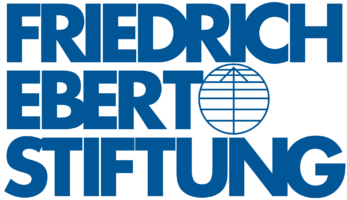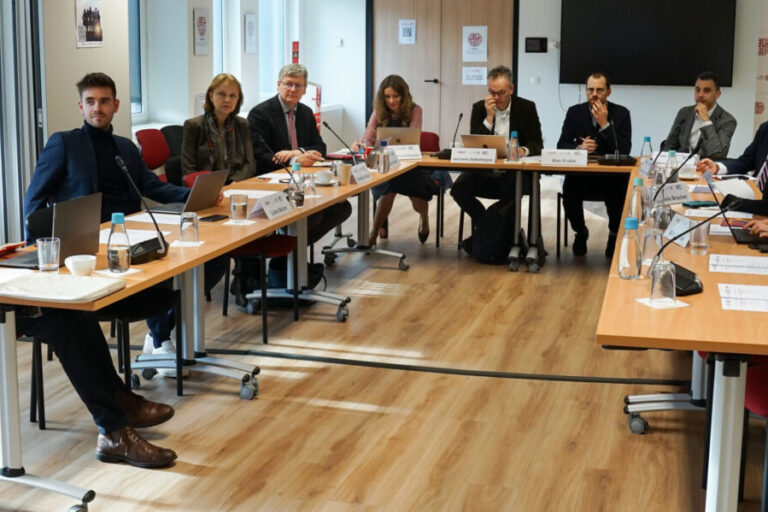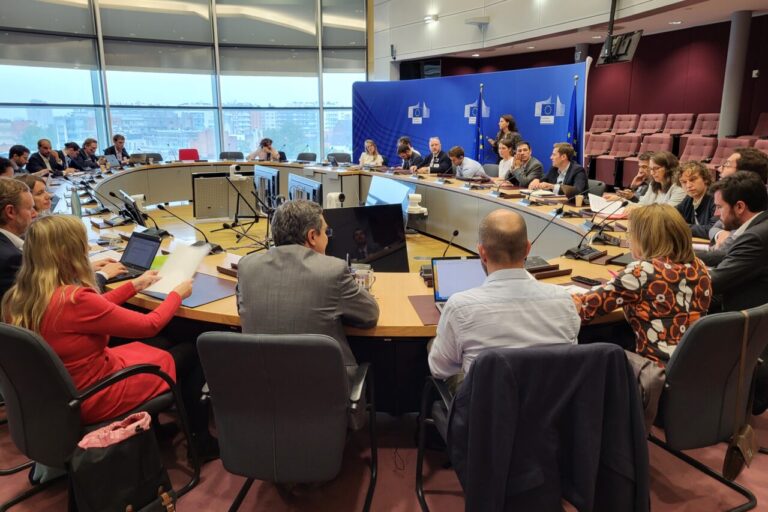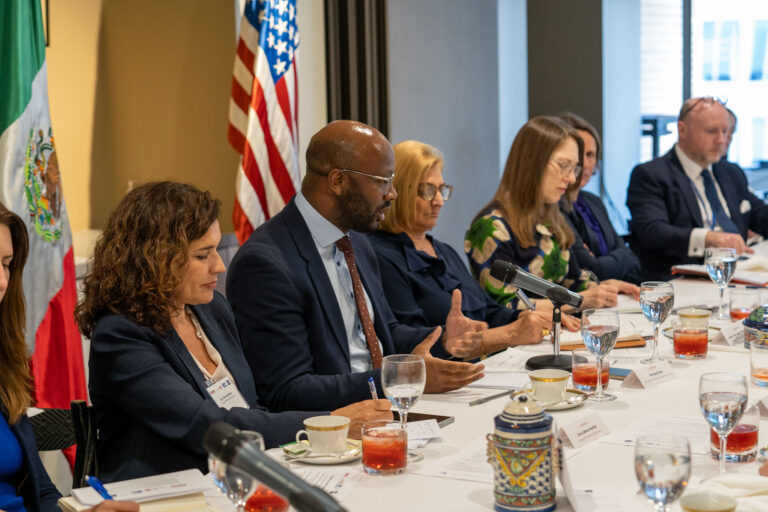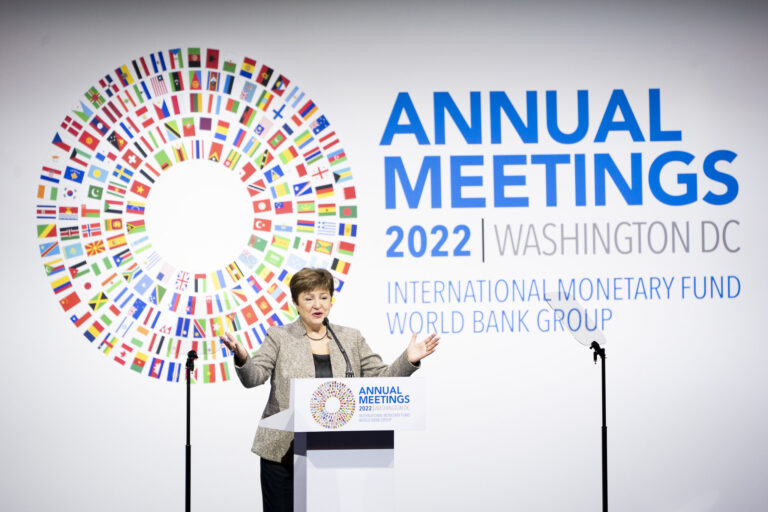On 21 September 2023, the Progressive Economics Network (PEN) met in Brussels to continue the discussions of the last meeting in Washington, D.C. that highlighted a paradigm shift in economic policy in the U.S. towards a new industrial strategy. At the heart of the day’s exchanges, held at the offices of Friedrich-Ebert-Foundation and the Foundation for European Progressive Studies (FEPS) as well as at the European Commission’s Berlaymont building, were possible ways of equipping Europe with similar policy tools, funding and governance to enable a far-reaching industrial and investment strategy. The Progressive Economics Network convenes senior economic advisors, experts and policymakers from the U.S. and Europe. It is a joint initiative of Das Progressive Zentrum, the Foundation for European Progressive Studies (FEPS, Brussels) and the Friedrich-Ebert-Stiftung (Brussels/Berlin).
The Biden administration is pursuing an industrial strategy rooted in the ecological and energy transition and a foreign policy for the middle classes. With the Inflation Reduction Act, the U.S. has crafted a fiscal stimulus package to boost public and private investment in clean tech. The policy is designed to promote innovation and comes with conditions that will improve working conditions, pay and security for workers.
While the NextGenEU funding has provided an unprecedented opportunity for green initiatives and industrial development, there seems to be insufficient capacity in member states to effectively use these resources for investment. There’s a need to continuously improve monitoring the investment frameworks to ensure high-quality investment whilst unlocking additional resources for decarbonising buildings, deploying renewable energy and building sustainable transport infrastructure. If such investment needs remain unaddressed, the returns from existing funding and the returns in terms of European competitiveness and quality of life would be compromised. Moreover, EU-led investment is necessary as state capacity varies across member states and the clean energy transition. Overall, investments and national state subsidies must not contribute to a divergence across member states. Based on these premises, the discussion was framed along the following key questions.
Key Questions
- How can member states’ capacity to deliver industrial policy and green investment ambitions, including analytical, project management and project deployment capabilities be increased?
- How can the trade-off between an industrial policy that is conducted on a Member State level on the one hand, and the European objectives of openness and convergence on the other, be reconciled?
- How can the European fiscal and investment framework be updated in order to create space for industrial policy, decarbonisation of buildings and transports and clean energy investment, while ensuring fiscal sustainability?
Investing In an EU-Wide Approach
After opening remarks by Christiane Kesper, Director, Friedrich-Ebert-Stiftung EU Office and Joachim Knodt, Member of the Board, Das Progressive Zentrum, the first two sessions of the day highlighted a common understanding for the need to harmonise EU industrial policy as bolstering resilience and facilitating the adoption of green technologies on the EU level will be key to avoid divergence. Interventions were made by Miguel Costa Matos, Member of the Portuguese Parliament and Secretary-General of Juventude Socialista, Philipp Jäger, Policy Fellow, Hertie School Jacques Delors Centre, Paolo Pasimeni, Deputy Chief Economist, DG Grow, European Commission and Senior Associate at Brussels School of Governance, Vrije Universiteit Brussel, Carys Roberts, Executive Director, Institute for Public Policy Research (IPPR), Margarida Marques, Member of the European Parliament and Co-Rapporteur on the Reform of EU Economic Governance, Sander Tordoir, Senior Economist, Centre for European Reform, Julia Lemke, Member of Cabinet, EU Commissioner for Economy and Vinzenz Ziesemer, Director, Institute for Public Economics. The discussants concluded that with each member state having different fiscal and analytical capacities to deliver industrial policy and no common EU fiscal policy in sight, it is imperative to coordinate capacities accordingly and to make use of available funds as efficiently as possible. This requires more analytical capacity on the EU level that allows to strategically plan and coordinate investments and draw conclusions from the measures taken. Due to the systemic competition with China, such capacity and investment coordination could expand across the Atlantic to ensure the most efficient use of funds amongst democratic partners. Nonetheless, without a harmonised EU industrial policy, participants see a real risk of under- or overspending of individual member states, subsidy races amongst member states and protectionism that may have an effect that cannot be in the interest of any member state: an increase in prices of green technologies.
Unlocking the Potential of Rural Regions
Next to a harmonised approach, a successful European industrial policy strategy requires analysing and learning from the design of the Inflation Reduction Act, and more precisely from its identification of specific sectors, regions and conditions for subsidies. There exists a gap in many member states between cities and rural regions, with know-how and technology usually accumulating in certain hubs or even member states. In order to make use of potential within the regions, a common EU industrial policy design needs to address how to transfer know-how and green technology from the centre to the periphery. The subsidies given to green industries through an industrial policy framework, be it through tax breaks or direct investments, should be tied to conditions similar to the Inflation Reduction Act. This includes profit sharing through fair wages and working conditions, but should also include provisions tied to issues such as affordable housing solutions and pension capital for workers.
Despite the need for a harmonised approach, the present experts agreed that a common EU fiscal policy to achieve a cohesive EU industrial strategy is not on the horizon any time soon. It is imperative to draw lessons from existing EU funding mechanisms, such as the Recovery and Resilience Facility. On the one hand, a new financing framework needs to take into account the different fiscal capacities of member states. On the other hand, a new mechanism must find the right balance between sensible funding conditions and giving member states the flexibility they need to make funds work best within the country. At the same time, more administrative capacity on the EU level can speed up the process of releasing funds to member states to avoid spending funds hastily (and at times senselessly) at the end of a funding period. Funding periods are often dictated by election cycles, thus hindering the creation of necessary long-term investment instruments. However, with an EU-wide reform of industrial policy being one of the main drivers towards a net-zero economy, moving beyond classic funding periods will allow for the necessary investment time frames.
Winning Elections with Convincing Economic Narratives
In a last session, the discussion was centred around how to win elections with the economy in view of the upcoming election of the European Parliament in 2024 and several national elections in member states coming up. Interventions were made by Ludovic Voet, Confederal Secretary, ETUC, Elizabeth Dirth, Development Director, ZOE Institute, Jonás Fernández, Member of the European Parliament, Member of the Committee on Economic and Monetary Affairs and Subcommittee on Tax Matters and Arun Chaudhary, Creative Director, Social-Changes and former Creative Director of Bernie Sanders’ 2016 presidential campaign and official videographer of the White House under Obama’s presidency. The main takeaway from the exchange is that narratives around economic policy issues need to be reassuring messages of safety and protection. To create a successful narrative on economic policy, policymakers should, in a first instance, identify what constitutes economic policy for voters (i.e. migration, green transformation or unemployment, social security, classic “bread and butter issues”) and align their messaging accordingly. This result should not feed into the narratives used by right-wing populists but should convey a credible and hopeful message. Ideally, such messaging should transform into a “kitchen table narrative” – a message that families and friends can discuss but ultimately find common ground on. To then make narratives and those standing for them credible and trustworthy in the long-term, voters need to get the impression that politicians stand for what they promised and deliver on promises made, not only when campaigning but especially during their time in office or in the opposition. The experts present agreed that there is a way to win the election with the economy as long as the narrative reassures voters.
Based on the exchange in Brussels, Carsten Jung, Senior Economist at IPPR as well as Senior Economic Advisor at Das Progressive Zentrum, wrote a Synopsis about how to equip Europe with similar policy tools, funding and governance to enable a far-reaching
industrial and investment strategy that can deliver a just transition to net-zero emissions, whilst securing competitiveness and energy security. Read it here:
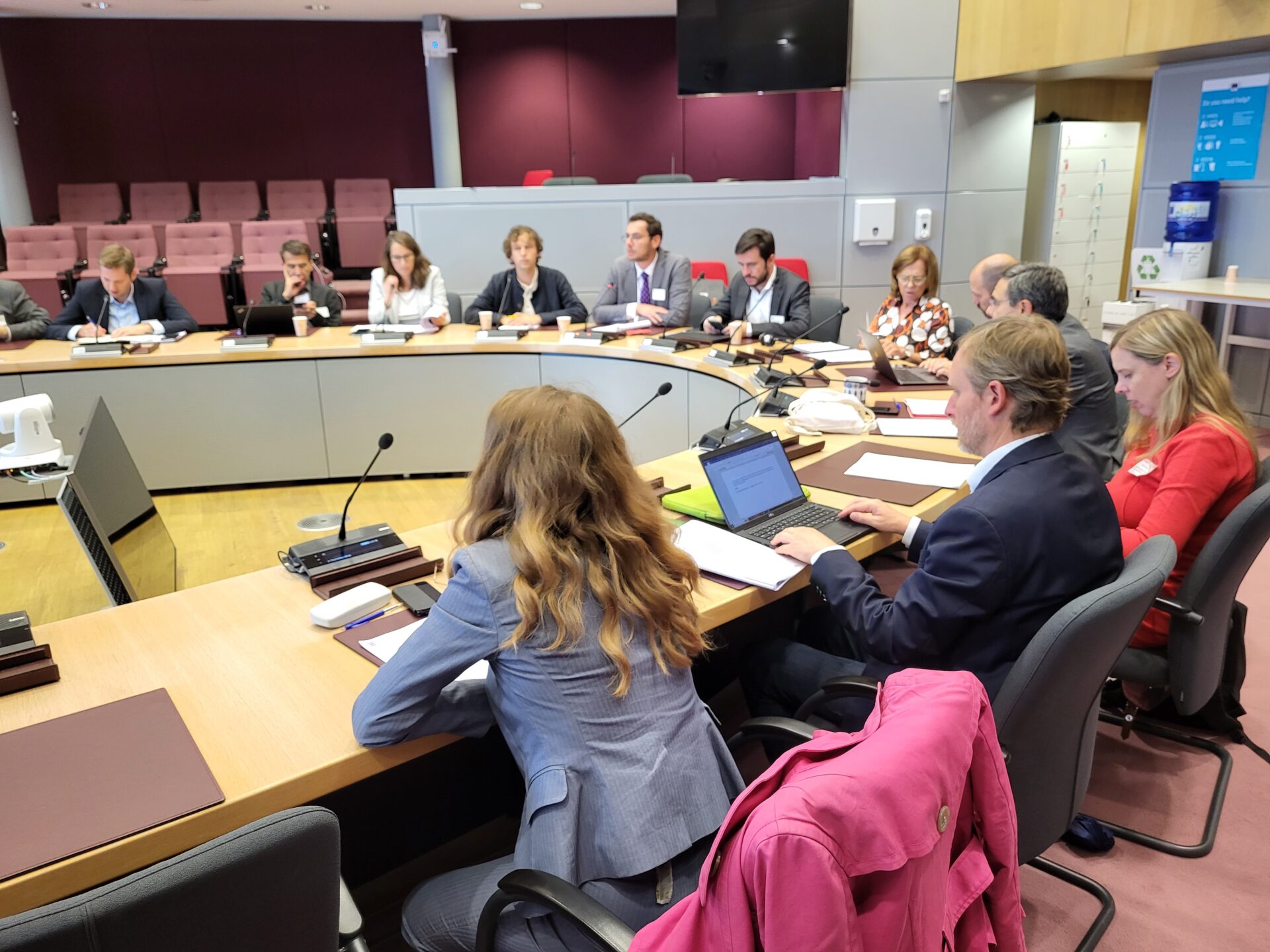
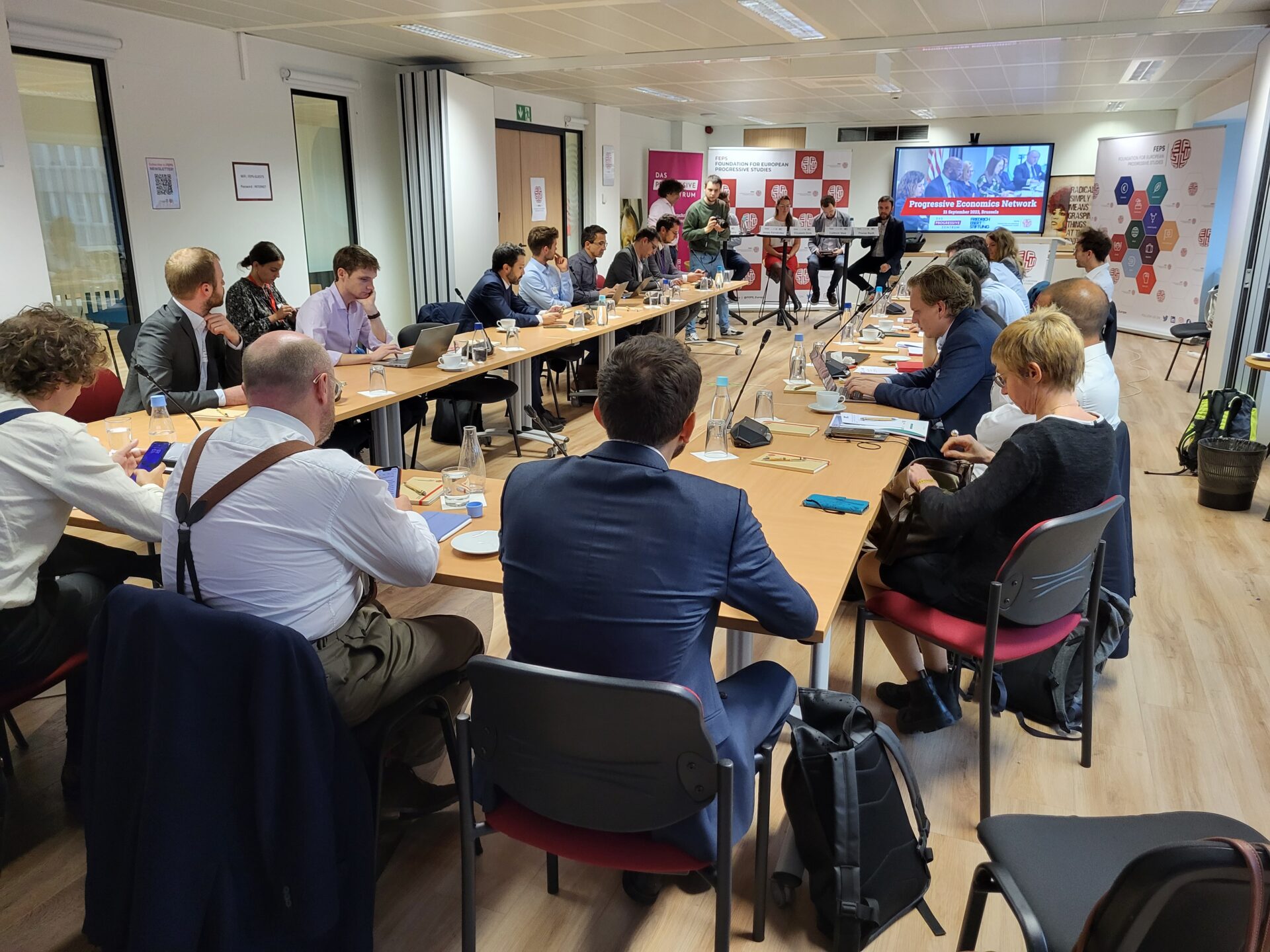
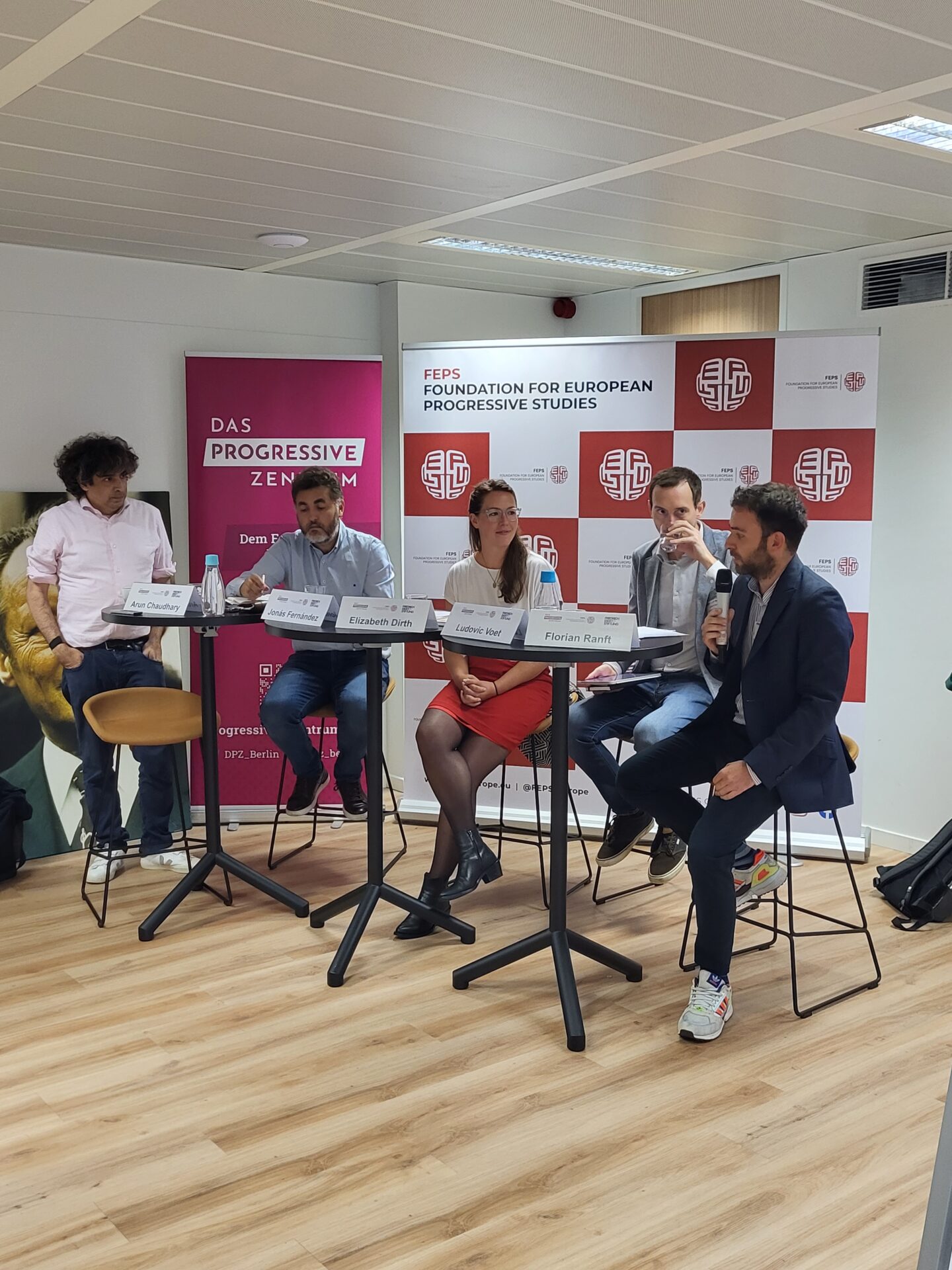
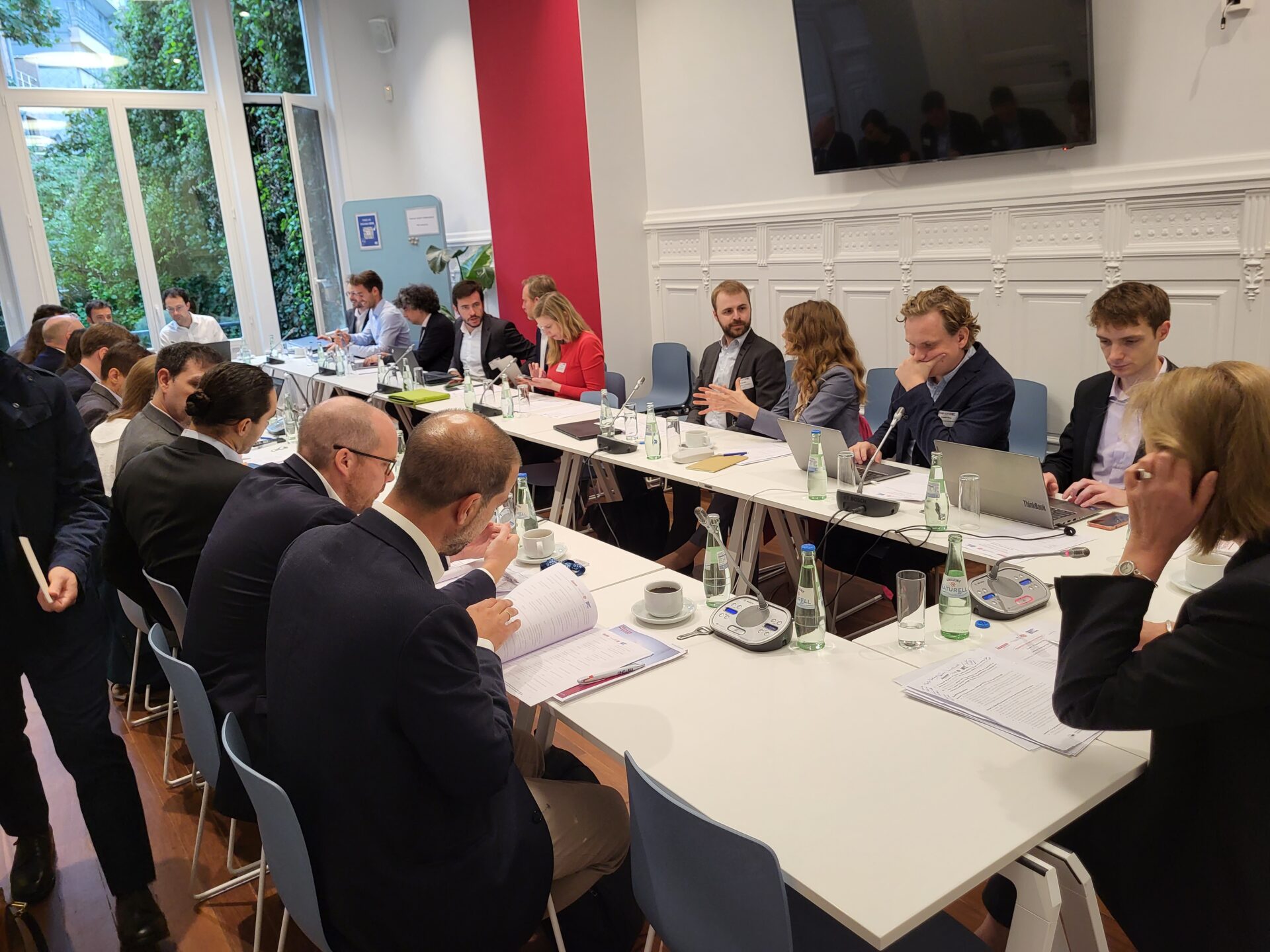
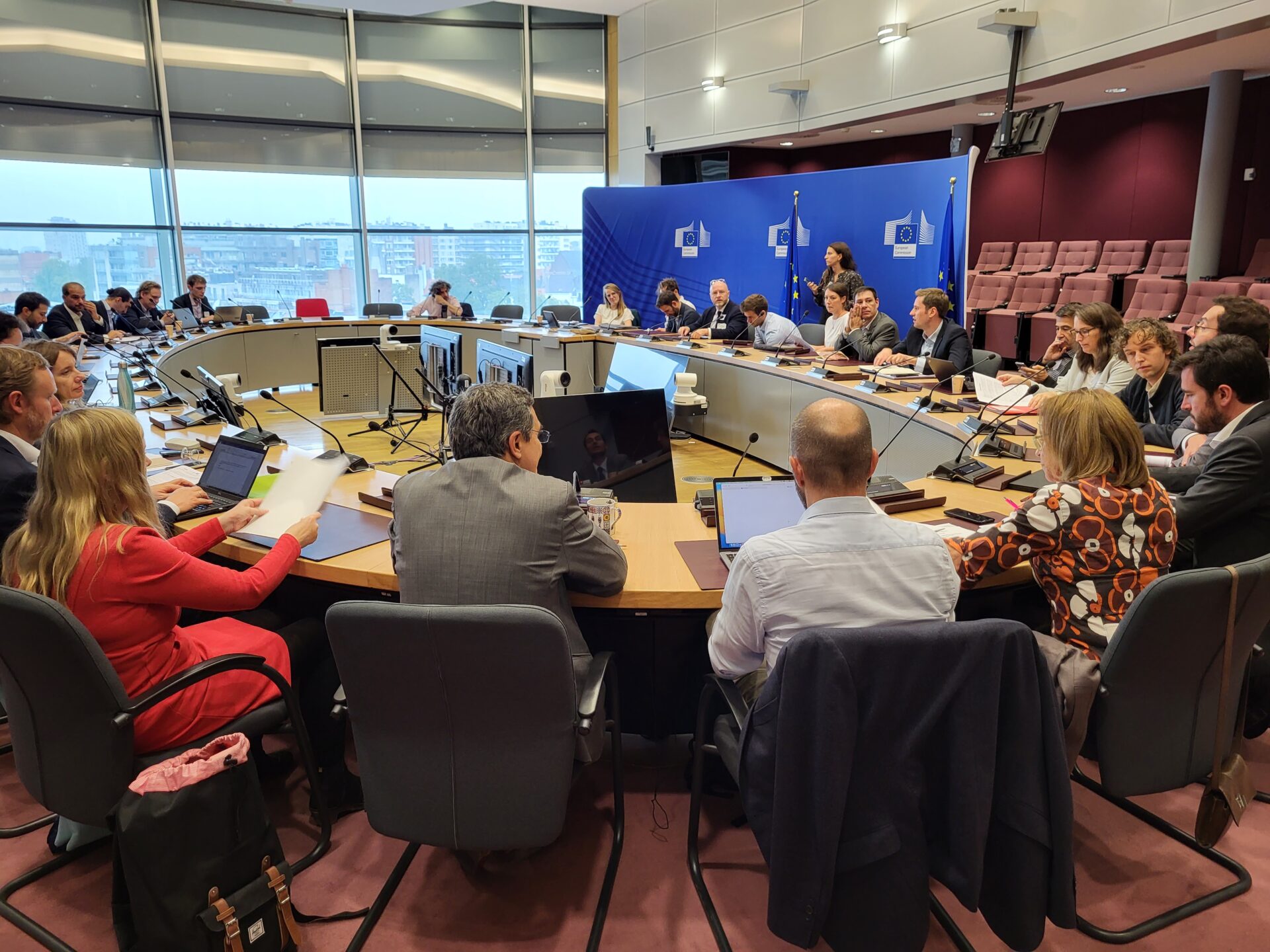
Previous Progressive Economics Network Meetings
Towards a progressive toolbox to deal with inflation - Progressive Economics Network Expert Meeting in Brussels
Getting the Green Deal Done: Progressive Economics Network meets in Brussels
Progressive Economics Network Meetings During IMF Spring Meetings in Washington, D.C.
Progressive Economics Network kicks off with pre-briefing for the IMF Annual Meetings

We develop and debate progressive ideas and bring together leading actors who turn thoughts into action. Our think tank’s goal: making the just transformation a reality. ▸ Learn more




